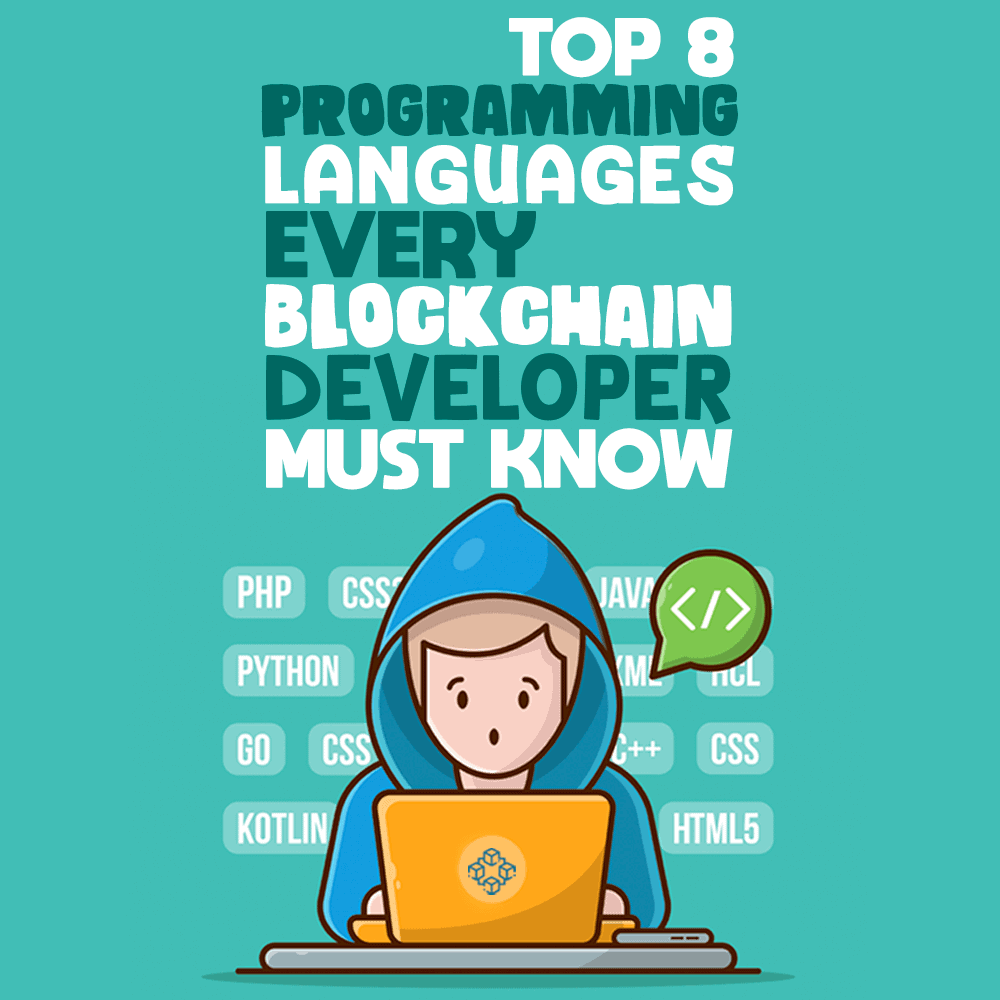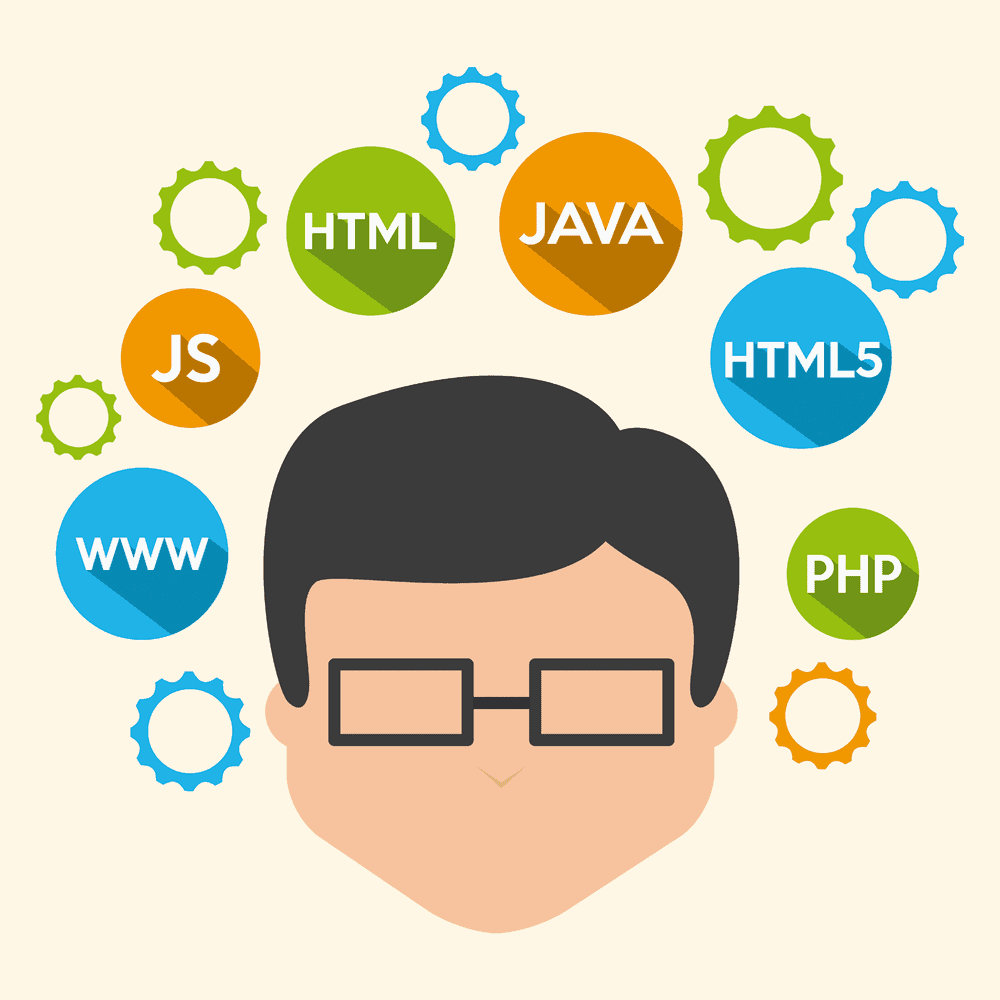 Here’s a question for you: Name the technology that has taken the world by storm, with core characteristics like decentralization, immutability, and transparency.
Here’s a question for you: Name the technology that has taken the world by storm, with core characteristics like decentralization, immutability, and transparency.
The answer is, of course, blockchain, which has entered and disrupted businesses and industries like no other in recent times.
As a result, almost every startup and establishment wishes to harness the power of blockchain in the form of decentralized apps, cryptocurrencies, or any other form and eventually get a slice of the blockchain market. The one that is anticipated to grow from $3 billion to $39.7 billion at a Compound Annual Growth Rate of 67.3% between 2020 and 2025.
This has resulted in a rise in the demand for blockchain experts. According to the latest data shared by LinkedIn, the number of blockchain developers jobs has grown by 40%. Another report by Glassdoor revealed that a 2% increase has been noted in the blockchain and crypto-related job offerings.
Likewise, a survey by Janco Associates in 2019 has shown that the average salary of a blockchain developer is estimated to be in the range of $125,000 and $175,000.
However, there’s a glitch.
Though there’s endless potential in the blockchain market, there is a lack of competent, experienced, and innovative blockchain developers, meaning only a handful of experts know what it takes to build a comprehensive blockchain project successfully.
This difference in the demand and availability for blockchain application developers has attracted various talents and made them curious to look ahead to learn the basics of blockchain development alongside the programming languages used for development in the industry.
Assuming that you are a developer who has a basic understanding of what blockchain technology is, let’s focus purely on the second factor, aka the languages you must know to serve startups and establishments with the finest blockchain solutions.
Are you ready?
Shall we uncover the names of the best blockchain programming languages?
Let’s go.
Java
The foremost language you can choose to step into the blockchain arena is Java.
The language is object-oriented and comes with various characteristics such as ease of memory cleaning and portability, meaning its potential is not confined to the device’s architecture. It has the ability to manage a large number of users across a blockchain network in real time.
This is something that makes it a perfect choice when it comes to building smart contracts and dApps like IoTA and NEM.
Solidity
Though new, Solidity is also a perfect choice for developing Ethereum-based smart contracts.
The language is statically-typed, has syntactical components related to ECMAScript, and was designed by the Ethereum team to help developers with writing high-level, smart contract-powered code that could be translated into and employed in lower-level languages. And in this way, it enhances the usability of the blockchain ecosystem.
Golang
Golang (or Go) is one of the top programming languages used to create hyperledger fabric and other decentralized solutions.
It is a statically-typed language that comes loaded with various advanced characteristics and features, namely generics, constructors, annotations, classes, exceptions, and inheritance. It is lightning fast, highly efficient, and offers facility to manage remote packages because of the smart implementation of channels and interfaces.
Besides, it employs ‘Goroutines’ instead of threads, which makes it easier for one to perform multithreading without worrying about the memory consumption and compilation time. This again adds to the reasons why Go is a perfect addition to this blockchain programming languages list.
Python
Created back in 1991, Python has gained huge momentum in the marketplace, especially because of their role in AI app development. However, this is not the end of the story.
The programming language is also known for building effective blockchain projects and coding smart contracts for different platforms such as NEO and Hyperledger. A few reasons behind which is that it has easier syntax and exclusive features, along with the capability to be used both at the compilation and running time. The noncompiled form of the language can be used to develop sophisticated blockchain apps for the logistics and agriculture domains.
C++
C++, which is already dominating in the tech world, is also showing traces of being the finest programming language for blockchain development, especially for building EOS.
This object-oriented language is based on different concepts including abstraction, encapsulation, data hiding, and polymorphism, which can help in preventing accidental data alterations and ensuring better memory handling capabilities. It is also aiding in keeping blocks secure and handling a vast amount of resource requests by empowering each network node to accept/reject the individual blocks.
C++ is helping with handling both parallel and nonparallel tasks in addition to enhancing single-thread performance.
JavaScript
JavaScript, the one that rules the web development world, also adds to the blockchain programming languages list.
This is because the language and its vast range of libraries and frameworks like Angular, React, and Node offer the ease of handling asynchronous actions. JavaScript aids blockchain developers in handling communication between multiple nodes effortlessly, which introduces the power of scalability into the designed solutions.
Simplicity
Released in 2017, Simplicity is also one of the top programming languages that can be considered for Smart contracts development.
The language, just like C++, is an object-oriented programming language and follows the same principles, making it suitable to avert errors and changes in the data. It also eliminates developer distractions, increases productivity, and employs Merklized Abstract Syntax Trees to group the programs into tree structure. As a result, it’s suitable for small transaction sizes, lowering down block space requirements.
Furthermore, by mid-2020, the language will be used for creating a wider range of blockchain projects.
SQL

The language was designed by IBM to foster communication with different databases that gather, store, and manipulate data. This includes MySQL, PostgreSQL, SQL Server, and Oracle. Evidence of which is Aergo, a SQL-based smart contract platform that facilitates enterprises with the functionality of creating and executing advanced smart contracts in commercial business ecosystems.
Land Yourself Into the Blockchain Domain
While the aforementioned are some of the programming languages that can be considered to enter the advanced world of blockchain development, there are many more prevailing in the market.
It is advisable to choose the right programming language for your career in the blockchain domain, learn it thoroughly, experiment with the language, and this way, prepare for ruling the marketplace.
